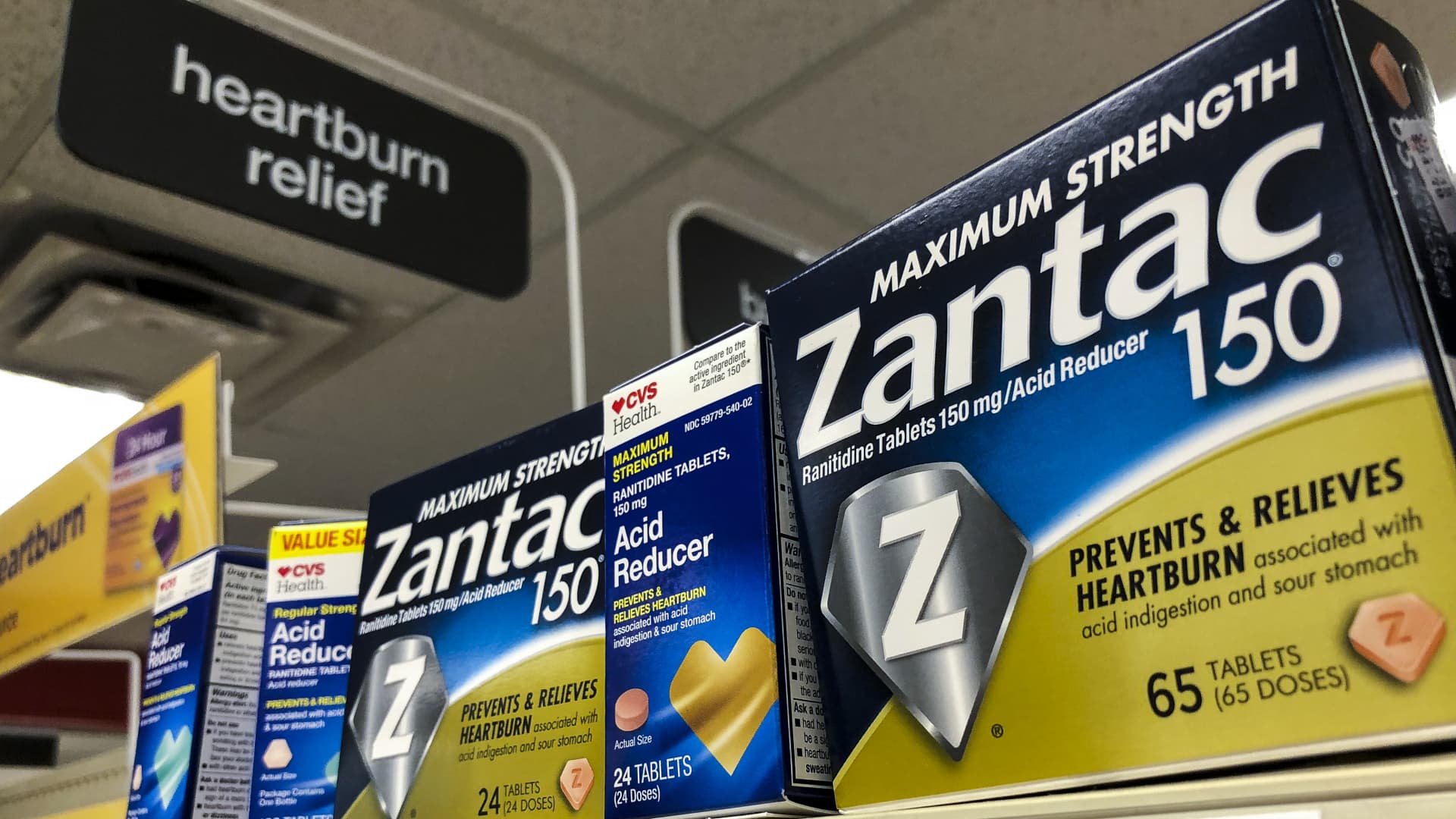
Several drug stocks are getting hit today on concerns of exposure to litigation related to Zantac, a heartburn medicine that was removed from the U.S. markets in 2020 after the Food and Drug Administration determined that impurities found in some samples that could potentially cause cancer. Boehringer Ingelheim, GlaxoSmithKline Klein (GLAXD), Pfizer (PFE) and Sanofi (SNY) have all been named as key defendants in an upcoming Illinois lawsuit that many are viewing as a bellwether for future litigation. Several more Zantac lawsuits have been filed at the state level, and more than 2,000 lawsuits in federal court. While Club holding Johnson & Johnson (JNJ) is not named in the upcoming litigation, we believe shares of the pharmaceutical company are trading down on the news. We are trying to estimate what Johnson & Johnson’s potential exposure to this litigation could be in a worst-case scenario. So far we see the impact as minimal. For background, Zantac was once part of Pfizer’s Consumer Healthcare business that was sold to Johnson & Johnson in 2006, but JNJ never owned the rights in the United States. While in the process of closing the deal, Boehringer Ingelheim purchased the rights to Zantac for $509.5 million in cash. Johnson & Johnson had to divest certain products like Zantac to appease deal regulators, and never sold the product in the U.S. (In April 2021, Sanofi released a new over-the-counter medication called Zantac 360° using a new formula with different ingredients.) We are monitoring future events in Canada, where JNJ sold Zantac and could be subject to litigation. We are aware that JNJ received a demand for indemnification from Boehringer Ingelheim in January 2020, making JNJ subject to certain Zantac-related actions filed in Canada. But the key thing to know is that if Johnson and Johnson were to have any share in the liability, we think it would be marginal. Precedents suggest a high-five, low-six figure average settlement per case in these types of product tort cases, according to analysts at Deutsche Bank. That would imply a shared liability (based on precedent and extrapolation of present caseload) in the $5-to-$10 billion range. But to reiterate, JNJ never sold the product in the United States. Bottom line: We believe today’s decline in JNJ’s stock price appears to be an overreaction, and we would be adding to our position today if we were not restricted from trading. We currently own 375 shares of JNJ, which represents 2.08% of the Charitable Trust portfolio. (Jim Cramer’s Charitable Trust is long JNJ. See here for a full list of the stocks.) As a subscriber to the CNBC Investing Club with Jim Cramer, you will receive a trade alert before Jim makes a trade. Jim waits 45 minutes after sending a trade alert before buying or selling a stock in his charitable trust’s portfolio. If Jim has talked about a stock on CNBC TV, he waits 72 hours after issuing the trade alert before executing the trade. THE ABOVE INVESTING CLUB INFORMATION IS SUBJECT TO OUR TERMS AND CONDITIONS AND PRIVACY POLICY , TOGETHER WITH OUR DISCLAIMER . NO FIDUCIARY OBLIGATION OR DUTY EXISTS, OR IS CREATED, BY VIRTUE OF YOUR RECEIPT OF ANY INFORMATION PROVIDED IN CONNECTION WITH THE INVESTING CLUB. NO SPECIFIC OUTCOME OR PROFIT IS GUARANTEED.
Packages of Zantac, a popular medication which decreases stomach acid production and prevents heartburn, sit on a shelf at a drugstore on September 19, 2019 in New York City.
Drew Angerer | Getty Images News | Getty Images
Several drug stocks are getting hit today on concerns of exposure to litigation related to Zantac, a heartburn medicine that was removed from the U.S. markets in 2020 after the Food and Drug Administration determined that impurities found in some samples that could potentially cause cancer.
View Article Origin Here





